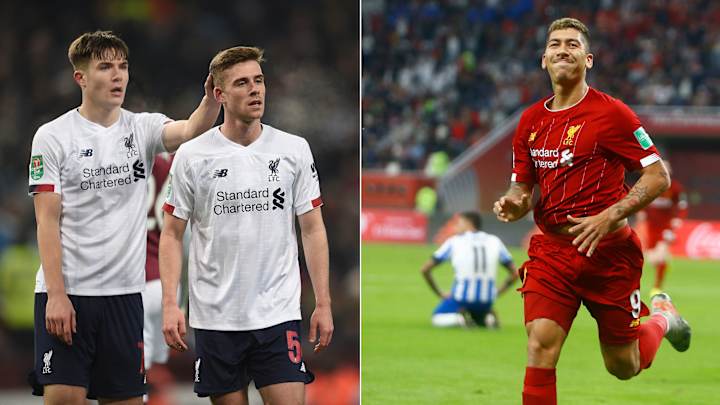Liverpool's Double Duty and Global Football's Growing Greed

In the end, Liverpool got away with it. It did beat Monterrey to progress to Saturday’s final of the Club World Cup, where it will face Flamengo, but this has been an unedifying week for football. About 24 hours after what was effectively a youth team went out of the League Cup to Aston Villa, the seniors–albeit with a number of changes from a putative first XI–struggled to beat the Mexican Concacaf Champions League winners.
But it did, 2-1, thanks to an injury-time winner from substitute Roberto Firmino, and in the short term, that is the most important thing for Liverpool. What it says for the future of the sport is another matter altogether.
The League Cup game ended up as a farce, notable chiefly for the rich variety of ways that journalist Richard Jolly, a master of the obscure stat, found to express the inexperience of Liverpool’s team. The matchday squad, he noted, had played 34 more times for Doncaster Rovers than for Liverpool, while the average date of birth of the players was June 18, 2000, the day after England beat Germany 1-0 at Euro 2000. There was no disgrace for the players in their 5-0 defeat.
They played well in patches, and the 4-0 halftime scoreline felt representative less of any gulf in quality than in experience and ruthlessness. The experience may even turn out to be beneficial for some of those players. But it was manifestly a terrible thing for football. Mismatches, by and large, should be avoided. This made a mockery of the quarterfinal of one of the three senior domestic competitions.

Liverpool thanks to scheduling, barely had a chance, and that’s bad not only for them but also for Villa. Winning a cup quarterfinal should be a moment of great joy and bring a profound sense of achievement, and yet as the goals starting to fly in, a number of players (if not Trezeguet) seemed doubtful whether they really should be celebrating.
The issue, as with so much in football, is one of greed–and it’s only going to get worse. The League Cup was established in 1960 to take advantage of the possibilities of floodlights, which made it possible to play games on midweek evenings. League attendances were dwindling, and clubs that were knocked out of the FA Cup early frequently struggled for revenue. In that sense, the League Cup is an anachronism, a competition born to solve the problems of six decades ago. But to scrap it would be to deny smaller clubs valuable revenue and middle-sized clubs perhaps their most realistic chance of silverware.
Liverpool prioritized the Club World Cup, and by agreeing to play two games in two days effectively sacrificed the League Cup. That makes sense both because of the global exposure and revenues the Club World Cup brings, but also because this arrangement prevents any disruption to Liverpool’s fixtures in the Premier League, which remains the club’s priority as it seeks to become England's top-flight champion for the first time in 29 years.

The truth, though, is that that the Club World Cup is of doubtful merit. For all of its supposed global remit, bringing together the champions of each confederation, the vast financial disparities between the clubs means that in its modern incarnation, 11 of the past 12 winners have been European.
The Club World Cup was essentially devised by FIFA as both a money-making venture and a shot across UEFA's bows, a means of limiting the power of the Champions League. That process has accelerated in recent years. The 2021 Club Word Cup will be played in China in June and July and will feature 24 teams from the six confederations. That will, effectively, be a Champions League by another name, but FIFA president Gianni Infantino, determined to break Europe’s stranglehold, spoke recently of plans for a pan-African league to try to raise standards and revenues then.
Worthy as that sounds, it doesn’t take much sifting through what few details of the proposal have been made public to wonder whether this isn’t more about creating a couple of powerful African franchises to offer the Club World Cup a veneer of global credibility, rather than about actually developing the African game and slowing the mass exodus to European leagues.
The clubs are certainly not exempt from blame in football’s obsession with enriching the rich, but in this instance, it’s hard not to sympathize. But in a sense attributing responsibility is academic. This is the culture football has created for itself, an absurd over-abundance, a lust for more and always more that takes no account of what might be reasonable or even what is possible.
